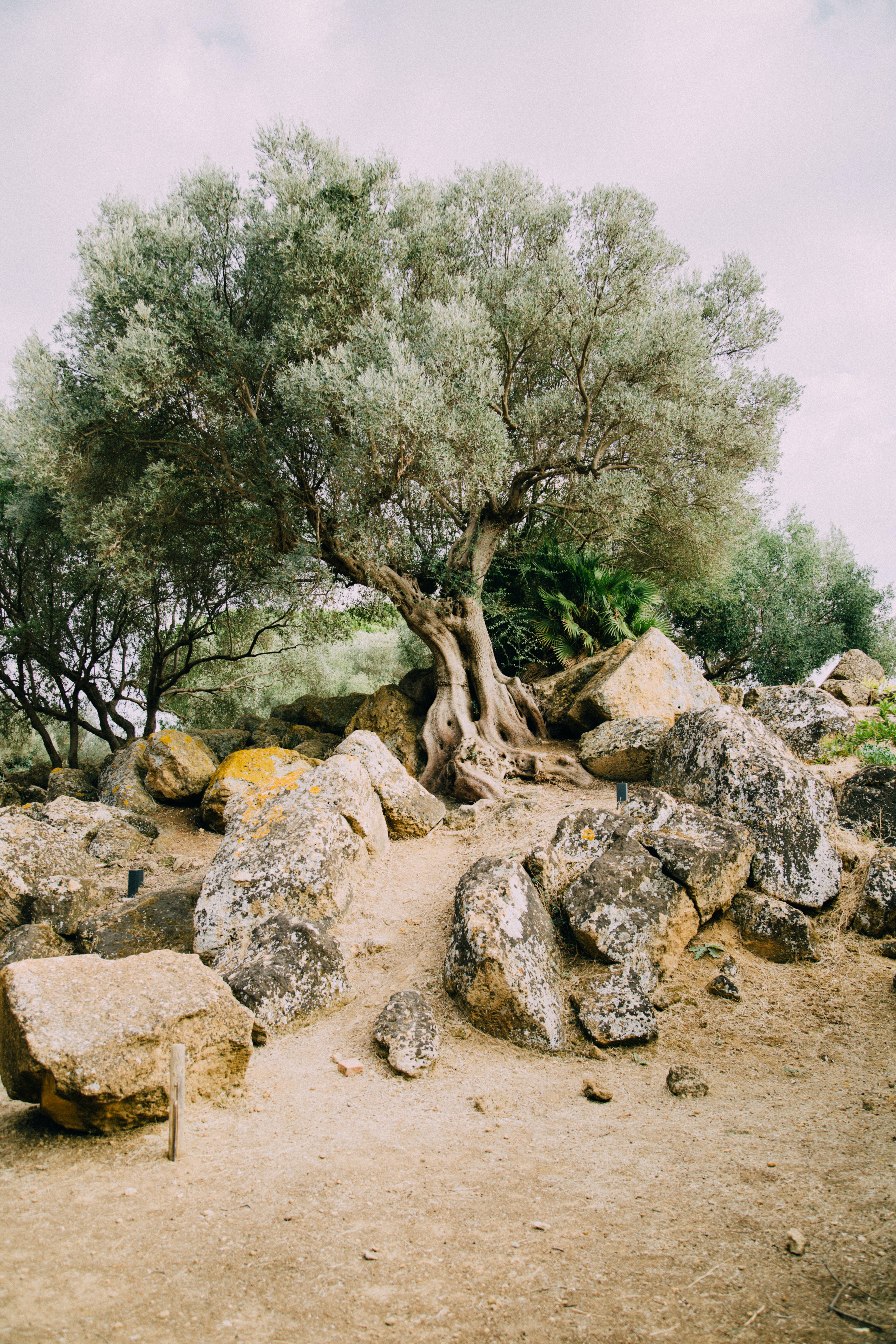Olive Tree
One of the oldest cultivated trees in the world, with evidence of its cultivation dating back over 6000 years.
The olive tree is one of the oldest cultivated trees in the world, with evidence of its cultivation dating back over 6000 years. The tree is native to the Mediterranean region, where it has been an important crop for thousands of years.
The ancient Greeks and Romans were known for their appreciation of olive oil, which they used for cooking, as a medicine, and in religious ceremonies. The olive tree was also highly valued for its wood, which was used to make furniture and other household items.
In many cultures, the olive tree is considered a symbol of peace, wisdom, and prosperity. In the Bible, an olive branch is brought back to Noah's Ark by a dove as a sign that the flood had ended. In Greek mythology, the goddess Athena gave the city of Athens an olive tree as a gift, which became a symbol of the city's prosperity.
Today, olive oil is still an important part of Mediterranean cuisine, and the olive tree remains an important crop in many regions around the world. The trees are also valued for their environmental benefits, as they are drought-tolerant and can help prevent soil erosion.
In recent years, the popularity of olive oil has spread beyond the Mediterranean region to other parts of the world. Olive oil is now widely recognized as a healthy alternative to other cooking oils, as it is high in monounsaturated fatty acids and antioxidants.
Some studies have also suggested that olive oil may have other health benefits, such as reducing the risk of heart disease and certain types of cancer. However, more research is needed to fully understand the potential health benefits of olive oil and the compounds found in the fruit and leaves of the olive tree.
Despite its many benefits, the olive tree faces several challenges, including pests and diseases that can devastate entire crops. In recent years, there has been a growing interest in developing new varieties of olive trees that are more resistant to these threats, and in promoting sustainable farming practices to protect the environment and ensure the long-term viability of olive farming.
Overall, the history and future of the olive tree are closely intertwined with human culture and development. As we continue to learn more about this versatile and valuable plant, we can better appreciate its many benefits and work to ensure its continued success in the years to come.

Lifespan of an olive tree
The lifespan of an olive tree can vary depending on a number of factors, such as climate, soil conditions, and disease. In general, olive trees can live for hundreds of years, with some trees in the Mediterranean region believed to be over 1000 years old. With proper care and maintenance, an olive tree can continue to produce fruit for many decades.
In fact, some of the oldest olive trees in the world are still producing olives today. The ancient tree of Vouves in Crete, Greece, for example, is estimated to be over 3000 years old and is still bearing fruit. The longevity of the olive tree is one of the reasons why it is such an important crop in many regions around the world.
It's worth noting that the productivity of an olive tree typically declines as it ages. However, with proper pruning and care, older trees can still produce a reasonable crop. In some cases, older trees may even be more desirable for producing high-quality olive oil, as the fruit tends to have a more complex flavor profile.
Overall, the lifespan of an olive tree is impressive, and it speaks to the resilience and adaptability of this remarkable plant. As we continue to cultivate and care for olive trees around the world, we can appreciate their longevity and the many benefits they provide.
Varieties
There are many varieties of olive trees, each with its own unique characteristics and flavor profiles. Some of the most popular varieties include:
- Arbequina: A Spanish variety known for its mild flavor and high oil content.
- Koroneiki: A Greek variety that produces small olives with a strong, fruity flavor.
- Picual: A Spanish variety that produces olives with a high oil content and a slightly bitter taste.
- Frantoio: An Italian variety that is often used for making high-quality olive oil, with a fruity and slightly bitter flavor.
- Leccino: An Italian variety that produces mild, buttery olives that are often used for table olives.
These are just a few examples of the many olive tree varieties that are cultivated around the world. Each variety has its own unique characteristics and is well-suited to different growing conditions and uses.